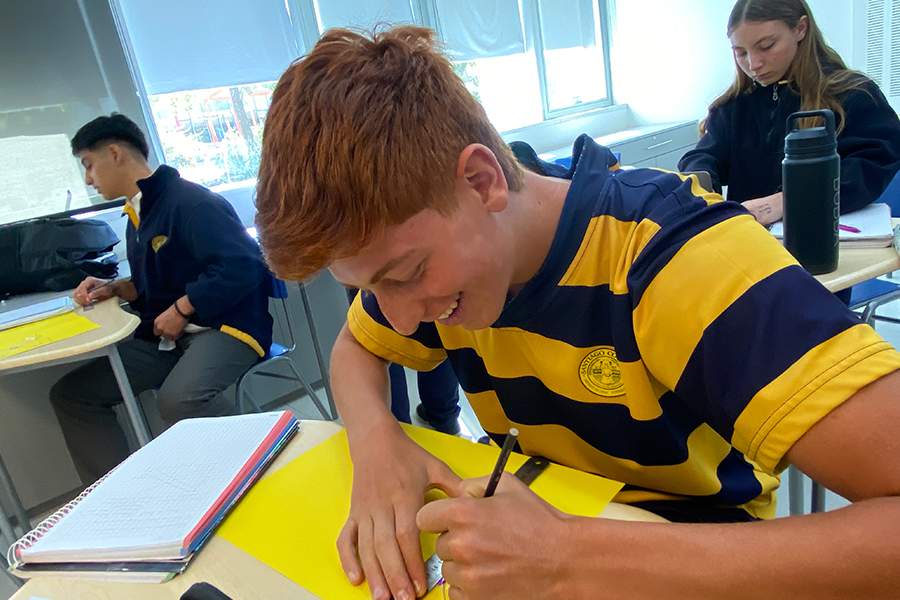

Santiago College takes a holistic view of education, so that along with intellectual and creative development, the school programmes address spiritual, personal, social, emotional and physical well-being. The school’s coherent curriculum supports, challenges and inspires personal excellence by removing barriers to learning and wellbeing, and by encouraging students to become confident and self-directed, lifelong learners.
This educational stance is supported by the work of some key partners. Specifically,
The SC Alumni Association:
The Alumni Association was founded in 1890. It is composed of former students and forms an important tier within the school. The current mission of this association is to safeguard respect for the history, traditions and growth of Santiago College Educational Foundation as an educational institution in Chile that complies with and honors its mission. The SC Parent Association: The mission of this association is to help build community spirit and have fun. The Parent Association supports a number of educational initiatives and events, including the biannual delivery of tuition scholarships to school families in need of economical support. The Parent Association also helps to coordinate the work of room parents from every year group, who volunteer annually to act as a link between the school and the parent centre.
The Association of British Schools in Chile:
Santiago College is a member of the Association of British Schools. This association of bilingual schools with similar educational aims, strives to promote good educational practice, constructive pupil interaction in cultural and sporting events, and the professional enrichment of staff through progressive in-service training programmes. Chilean Ministry of Education: Santiago College is legally recognized by the Ministry of Education, and as such, the school complies with local educational requirements. Students are required to take the SIMCE exams during their time at school, and their grade point average (NEM) is recorded from 9th grade to 12th grade, which together with the voluntary PAIS exams, serve as entry requirements for Chilean universities. International universities will typically require IB Diploma results.
The International Baccalaureate:
Santiago College offers children from pre-kinder to grade 12, the opportunity to engage with three educational programmes from the globally recognized International Baccalaureate. The mission of this organization aims to ´develop inquiring, knowledgeable and caring young people who help to create a better and more peaceful world through intercultural understanding and respect.’ This mission is well aligned with the school’s Guiding Statements. In 1981, Santiago College adopted the International Baccalaureate Diploma Programme, becoming the first school in Chile to do so. The school then adopted the IB Middle Years Programme in 1994, and the IB Primary Years Programme in 2001. The school is also a member of the Chilean Association of IB Schools (ACHBI), who organize conferences, workshops and student orientated experiences.
The Council of International Schools:
Santiago College is accredited by the Council of International Schools (CIS) and the New England Association of Schools and Colleges (NEASC). These globally respected bodies help the school to measure itself against international standards, and ultimately informs community plans for strategic improvement. Importantly, as an accredited school, Santiago College aligns itself with the CIS Code of Ethics, which describes the following responsibilities.
1. Fulfill the promises of the guiding statements, policies, contracts, and promotional materials.
2. Strive for excellence.
3. Nurture a culture of care, where the education, safety and well-being of students are paramount.
4. Comply with applicable laws and regulations.
5. Respect the dignity and equality of all individuals, groups and cultures. 6. Promote global citizenship.
Santiago College shares an understanding that at the centre of education are students who come to the school with combinations of unique and shared values, knowledge, skills and experiences of the world and their place within it. The school’s educational programmes grow from an understanding that people work together to construct meaning and make sense of the world.